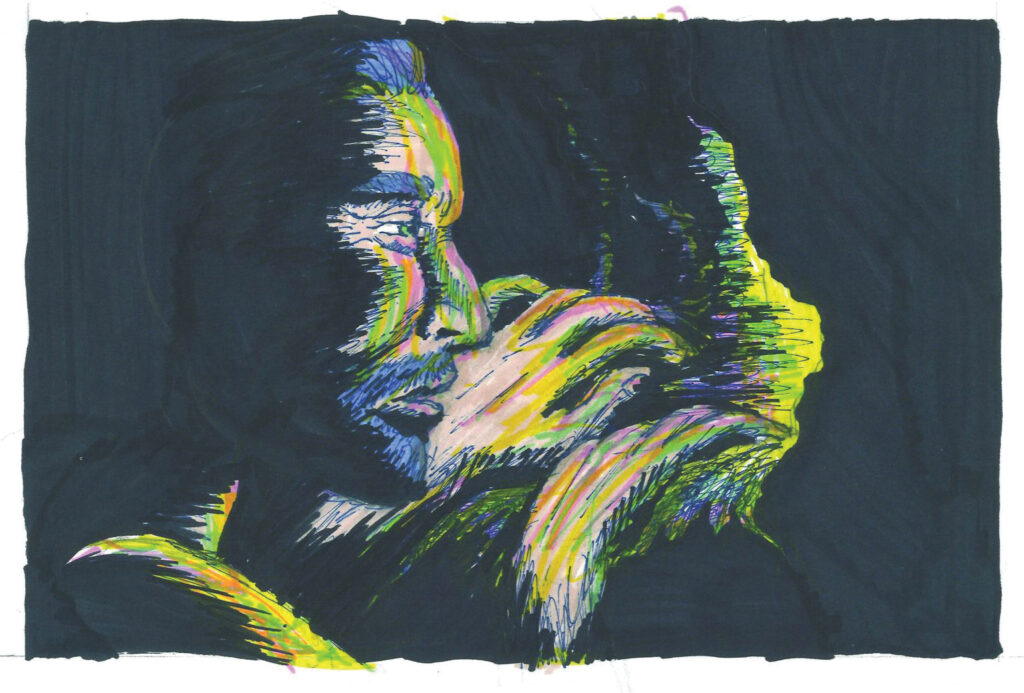
Author Jack Bragen reflects on the difficulty of navigating mental health, supportive services, and poverty.
Years ago, while I sat in a waiting room at a mental health clinic, I observed an old man who might have had dementia being brought in to get his shot of medication. He was grumpy and complaining at first, but said he felt better after the shot. It is plausible that the person administering it was to the man’s liking. It seems more doubtful to me that the medication, very likely a time-release oil compound injected into the muscle, would quickly make him feel noticeably better.
It is comforting to think that many disabled people can be taken care of and might not need to fend for themselves. Survival, if we have to do it alone, is not easy, and it is not getting easier. Quite the contrary.
When I first became ill with psychosis, four decades ago, I was not up against the challenge of basic survival. I faced coming back to reality, emerging from a psychotic, erroneous, substitute reality generated by my malfunctioning brain. For the basic needs, I was young and could rely on my parents.
Counselors and others seemed to infantilize recipients of mental health care. There was a lot of talking down and a lot of assumptions that we could not take care of ourselves and were not competent. It is a disservice to make assumptions like that, because doing so creates an increased barrier to a “patient” succeeding in one’s endeavors.
Example: In a therapy group, we were going to bake a cake. I have baked cake from cake mixes in the past and it is not a problem. However, this counselor assumed I could not bake a cake without being supervised and helped.
The above scenario speaks to how things were in the 1980s and 1990s. I wouldn’t mind more of that today since it is far more comfortable than what I now face. And I am not alone. Many older recipients of mental health care are concerned for their survival.
At one time, I might have rebelled against restriction and being taken care of. Now it is closer to being appealing. If the mental health system was willing to take care of me in exchange for a few restrictions, it seems like it would be a tempting deal.
Today, it seems as though everything has turned upside down. Mentally disabled people are often left to fend for ourselves. The supposed help we might get comes from the criminal justice system, including “Care Court” and “Laura’s Law.” These two laws automatically take away our rights and make it likely we will be incarcerated.
Incarceration and homelessness in the U.S. appear to be the two worst things you can do to a human being. And if you have a record of incarceration, it can ruin your chances of success for the rest of your life. If you are homeless, you are living outside of the comforts and support provided by residential infrastructure, (e.g., cooked food, indoor plumbing, heating, having a car.) As it stands, many are left with no means of existing and/or surviving. Surviving is illegal if you don’t have enough money.
My living situation seems precarious, and I lack income. And yet my psychotic mind wants to come up with entirely different ideas that would explain what I have seen, heard, and felt. Sometimes I’ve mused that maybe I am better off relapsing so that I can be moved to the “category” of the severely mentally ill. However, the social service system as it is today provides no accommodations. There are no halfway houses for mentally ill but otherwise intelligent people to recover under decent and comfortable conditions. That’s long gone.
As I write this, I am close to age 60. Many mentally ill people do not make it this far. My level of progress has probably blown away all predictions. But I doubt it protects me. Schizophrenia for many patients is a disease that gets milder and less severe when you get to this age, if you can make it this far alive and intact, that is. I’m up against a substantial plate, one that includes a number of smaller increments. If someone gave me an opportunity not to need to do all of this, I would have to completely give up on having a self-directed life. I don’t truly believe I can be infantilized and restricted because the people in charge of it would not trust me to stay within bounds. But if given a choice, dear reader, which is better? I cannot answer for anyone else.
My hope is that I can live under good conditions once again, within a few years from now. At present, I’m struggling through a lot of problems. My future is uncertain, and yet so is everyone’s.
These are exceedingly challenging times for those who consider themselves “normal.” And these times are and more, far more challenging for people with disabilities. Liberty and care are both being taken from us through governmental and public action. And because of discrimination, the opportunity to better our conditions is evaporating. We are being infantilized with one hand, and left to our destruction with the other.
Jack Bragen currently lives in the San Francisco Bay Area.
